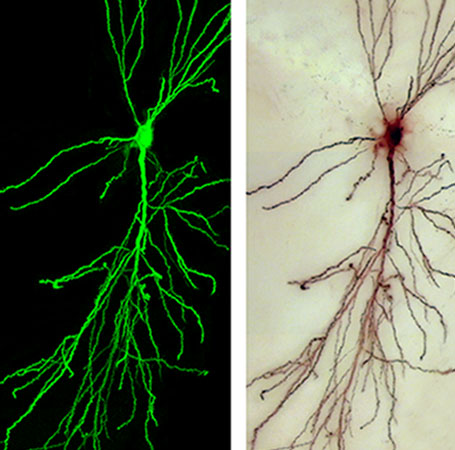Cell adhesion molecules and downstream growth factor-dependent signaling are critical for brain development and synaptic plasticity, and they have been linked to cognitive function in adult animals. We have previously developed a mimetic peptide (FGL) from the neural cell adhesion molecule (NCAM) that enhances spatial learning and memory in rats. We have now investigated the cellular and molecular basis of this cognitive enhancement, using biochemical, morphological, electrophysiological, and behavioral analyses. We have found that FGL triggers a long-lasting enhancement of synaptic transmission in hippocampal CA1 neurons. This effect is mediated by a facilitated synaptic delivery of AMPA receptors, which is accompanied by enhanced NMDA receptor-dependent long-term potentiation (LTP). Both LTP and cognitive enhancement are mediated by an initial PKC activation, which is followed by persistent CaMKII activation. These results provide a mechanistic link between facilitation of AMPA receptor synaptic delivery and improved hippocampal-dependent learning, induced by a pharmacological cognitive enhancer.
